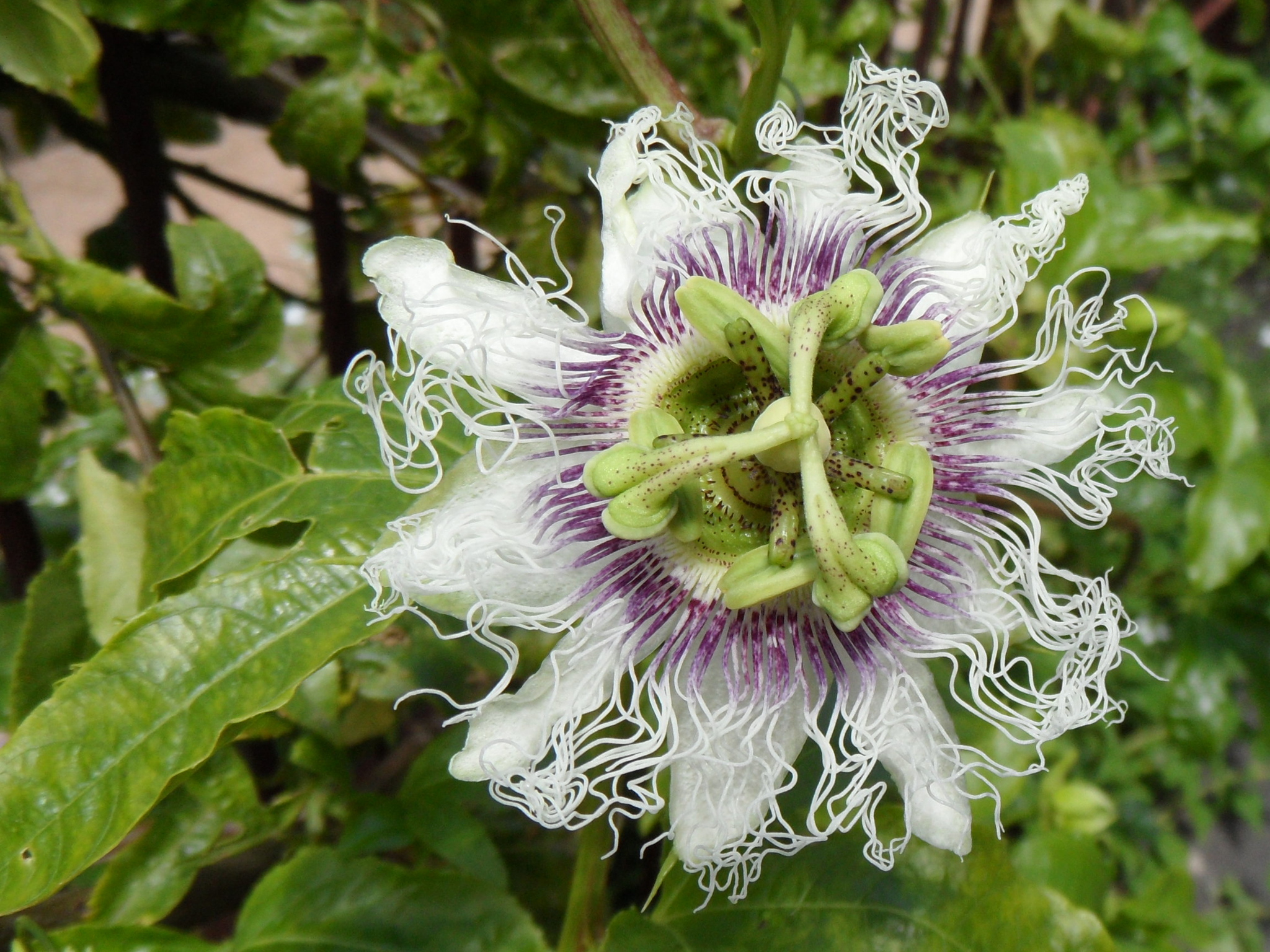
Hairless perennial tendril climber. Leaves deeply 3-5 lobed with saw-toothed margins, occasionally unlobed when young, deep glossy green with 2 glands at the joint of leaf blade and stalk. Flowers about 6-7 cm wide, white with purple colourings; spring to summer. Fruit purple when ripe.
Brazil
Occasionally naturalised in New South Wales and Queensland.
This is the commonly cultivated Passion Fruit of Australia with several cultivars grown for their fleshy seed pulp: used in salads and flavourings and cooking, often as a base for the Australian pavlova topping. It is grown commercially in subtropical and tropical regions, mostly coastal Queensland and New South Wales. In Victoria it has been available since the 1940s as a grafted plant. Scions are usually of seedlings which have unlobed lower leaves, although scions of mature wood are used by some growers. The original rootstock P. mollissima was discarded in the 1950s and P. caerulea used instead although immunity from virus is not guaranteed.
Nellie Kelly is a trade name originating from the Nellie Kelly Nurseries of Moorabbin, Victoria; the vine is grafted to a disease and cold-resistant stock; the name 'Ned Kelly' is assumed to be a confusion with this name.
f. flavicarpa Degen., Golden Passion (Yellow Passion Fruit) has yellow fruits and sometimes referred to as 'Golden Wonder'. Seed of this variety under the name Orange Passion Fruit was on sale in Melbourne in 1953 but specimens are not known to have fruited. Apart from the yellow fruits this form is said to have larger, more attractive flowers as well as slightly larger but more acidic fruits. Hybrids of this plant form the main passionfruit crop in Queensland; they include 'E23', 'Purple Gold' and 'Lacey'. This form is said to be resistant to Fusarium root rot and used as a rootstock for grafting.
Source: (1997). Passifloraceae. In: . Horticultural Flora of South-eastern Australia. Volume 2. Flowering plants. Dicotyledons. Part 1. The identification of garden and cultivated plants. University of New South Wales Press.

Passiflora edulis 'Norfolk Island'
Was the name given to seed used in the 1950s and now claimed to produce sweet and prolific fruit although the difference between this and other P. edulis is not pronounced.